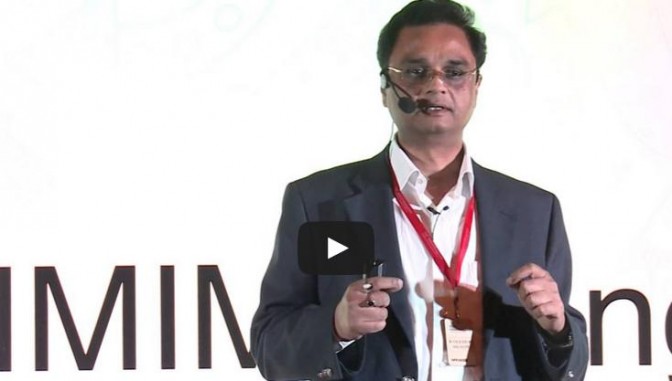Facebook will be ushering in 2015 with a few major changes in their algorithms that will leave many firms with a frown. The social media giant plans to make every single post by companies and brands paid so that fewer promoted posts appear in a user’s news feed. It has also assured its 1.35 billion active users that there will be no increase in the number of ads and a ban on like-gating which is instrumental in driving traffic to company campaigns, contests, etc. “Like-gating” is used as a tool by companies, especially FMCG firms, to ‘like’ and follow the brand or company in order to allow access to content or contests. With this key instrument withdrawn, companies now have to resort to a whole new marketing and advertising strategy to promote their products and services to their customers. Facebook, on the other hand, still doesn’t expect much drop in its revenues despite such a decision. Let’s take a look at both the sides and the implications of the new policy by facebook.
How the companies are responding?
Firstly, the companies, who until recently were dependent on the organic growth of customers through unpaid posts and promotions on the social platform have been seeing a consistent drop in the growth rate of customers. This indicates decrease in the reach of such campaigns which require high levels of investments, for example, retail store giant Big Bazaar spends almost a third of its digital marketing budget on Facebook promotions. Although firms will not undermine the potential of Facebook as a platform for promotions, but now with the new changes, they will definitely trim down the number of ads and promoted posts to fit into their budget constraints. Many CEOs and Marketing Heads of companies have already seen this coming and started taking necessary steps. The only thing that seems plausible now for these companies is to create more quality and engaging campaigns and advertisements to ensure maximum involvement of people. They have to move away from the ‘sales-push’ to the ‘marketing-pull’ philosophy so that users can relate and connect to the promotion strategies designed for them. This will encourage more viral ad campaigns, interesting contests and innovative marketing strategies but on the other hand require more time in devising such strategies to make it more relevant.
Secondly, many companies have started or at least planning to have their own site, a micro one, for promoting their products. It’s not an entirely new concept, but more and more companies have turned to this as a response to facebook’s policy changes. Be it HUL’s Ponds or P&G’s Tide have their own microsites since long and many more will soon follow suit. Facebook as a platform may be utilized as a point of redirecting users to these sites in the future as individual ads will be an expensive affair.
FMCG giants and HUL, P&G, Future Retail, etc. may not feel the heat but smaller players who almost entirely depend on such unpaid posts on social media will take a beating in terms of attracting eyeballs to their products. With the new move by facebook, they will have to explore additional or newer platforms for promotions. Overall, the quality content of promotion strategies in terms of customer engagement, innovation and relevance will replace the constant peppering of similar ads campaigns.
Why Facebook still doesn’t lose a penny…
Facebook is on the other hand expecting an increase in revenue as opposed to what one would think. The reason is simple: With increasing user base at a rate of almost 2%, it will be inevitably the most resourceful platform for interaction with prospects for companies. Thus, Zuckerberg and Co. will be expecting companies to reduce the number of promotion campaigns but are confident that companies definitely will not reduce their average investments, if not increase them. Increasing access to Facebook through smartphones can be seen from revenue contribution of mobile ads which amounts to 2/3rds of the total revenues of Facebook. This has opened up newer avenues for Facebook to keep their company subscribers satisfied through reaching out to more and more users worldwide.
Many critics have however, questioned the move by Facebook as it defeats the purpose of a social media website where people are supposed to interact with people and companies, too. Some believe in order to gain more user satisfaction, Facebook has tried one thing too many and may have damaged its reputation amongst companies as a promotion platform.
This whole set of events emphasizes on one thing: Companies heavily rely on digital marketing especially through social media platforms like Facebook and Twitter. Companies not only will have to find more unique ways to promote their products and services but also to do this more effectively and efficiently. It remains to be seen whether this move to enhance user experience while they browse through news feed will make the desired impact, spur innovative and content amplified promotion strategies by companies along with increase in user base or 2015 has something else in store for Facebook…
Tags: digital marketing facebook social mediaYou might like reading:

Empowering Youth – 3 Step Mantra | Rakesh K Menon | TEDxNMIMSBangalore 2015
The talk provides solutions to the multitude of problems found in the Indian education system; problems related to the high dropout rates due to conventional mindsets present in our society, accessibility issues and a huge faculty crunch. Vocational education integrated with content creation, delivery and identification of employment opportunities is what can serve as a means to bridge the gap […]
Opinion: Why Start-ups fail ?
Avinash is mechanical engineer from IIT Bombay. After completing his graduation, he opted out of placements and started his own web-analytics firm with an initial capital of INR 10 Lacs. Though he started his enterprise solution with great vigour, he failed to attract any significant client. Ten months later, he decided to close his business. He is presently undecided about […]






























